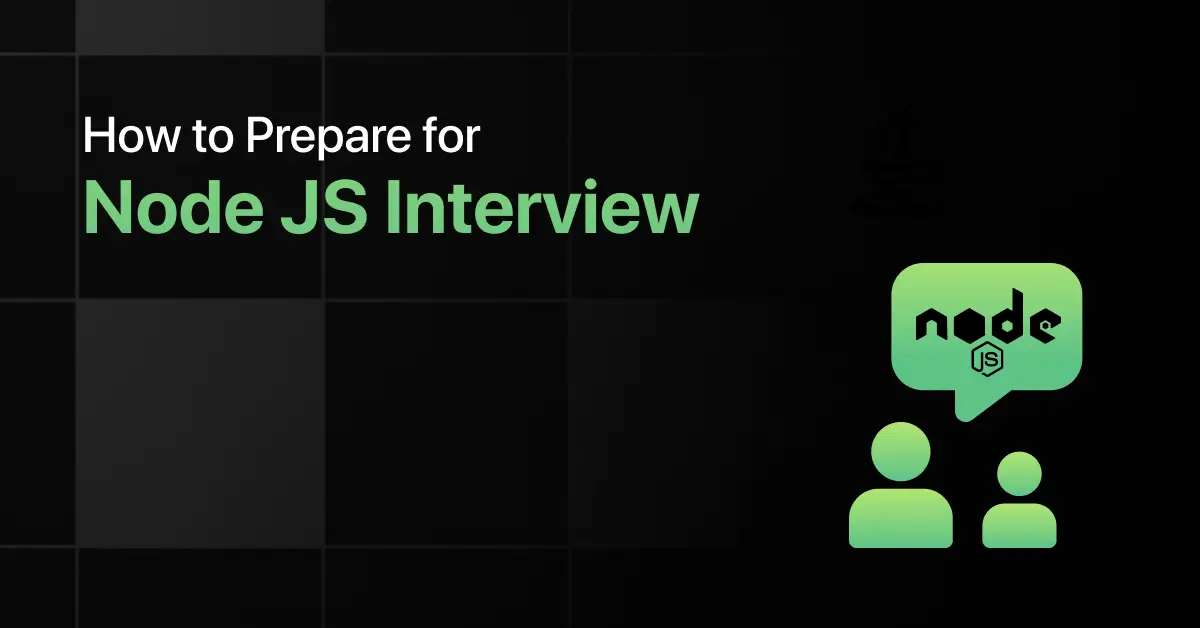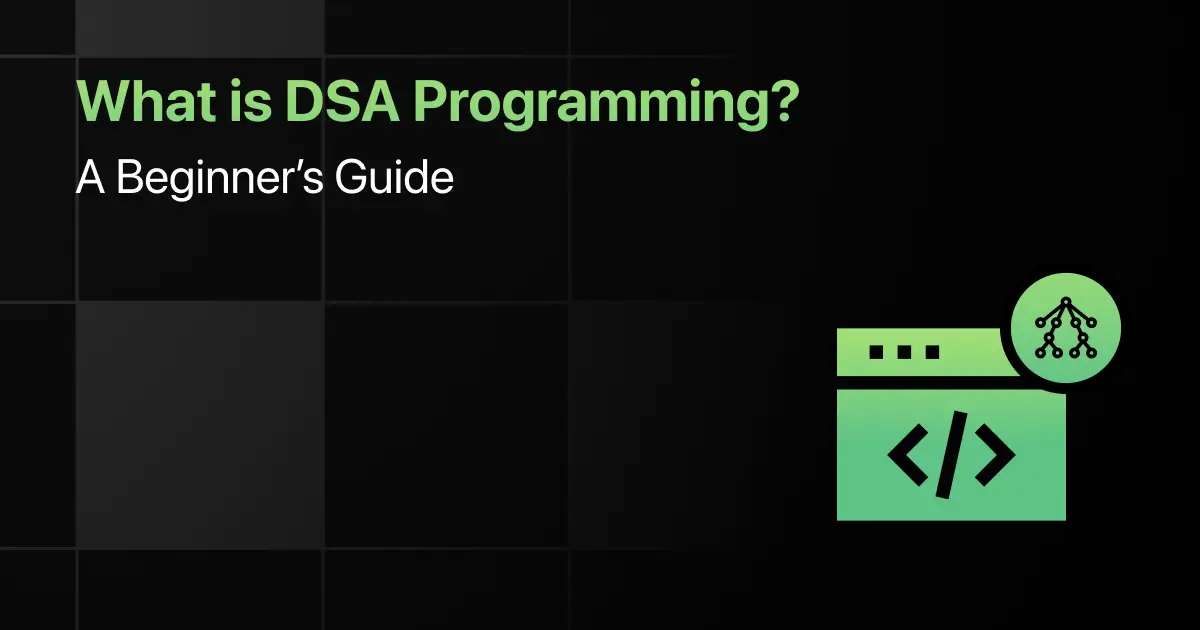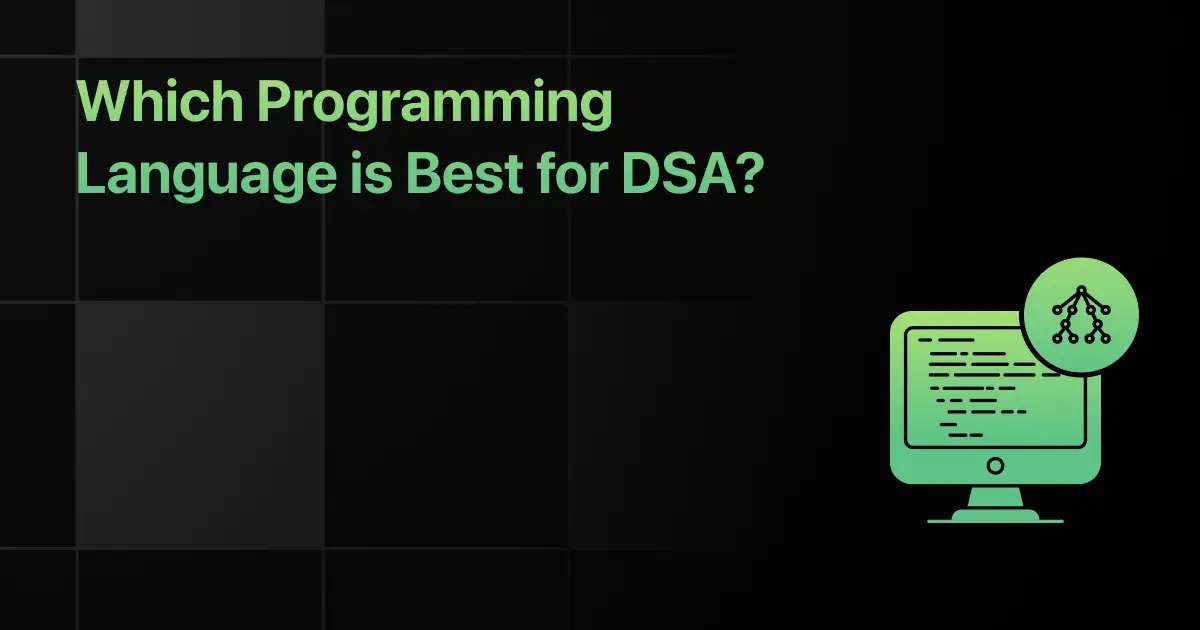How to Prepare for Node JS Interview

Are you preparing for a Node.js interview but unsure which areas to focus on?
Many candidates struggle with balancing JavaScript fundamentals, backend concepts, and hands-on coding practice while preparing.
This blog will provide a structured plan for Node.js interview preparation, covering essential topics, commonly asked questions, and practical tips to help you perform confidently.
Node JS Interview Preparation Guide
Preparing for a Node.js interview requires a solid grasp of JavaScript along with backend concepts such as modules, event-driven architecture, asynchronous programming, and working with APIs. Interviewers often test how well you can build scalable server-side applications and manage performance under real-world scenarios.
To strengthen your preparation, it helps to combine coding practice with practical projects and explore real interview experiences, which provide insights into the type of Node.js questions companies frequently ask.
1. Master the Core Fundamentals
A strong understanding of Node.js fundamentals is necessary to perform well in interviews. Employers often begin with questions about the basics before moving to advanced implementation. Key areas to revise include:
- Node.js architecture and event-driven model
- Modules and the require/import system
- NPM (Node Package Manager) usage and package.json
- Asynchronous programming with callbacks, promises, and async/await
- Event loop and non-blocking I/O
- Streams and buffers
- Error handling in Node.js
- File system operations
- Working with HTTP module to create servers
- Basics of Express.js framework
- Having clarity on these topics ensures you can answer both conceptual and hands-on questions.
2. Practice Coding Problems Consistently
Coding practice is a critical part of Node.js interview preparation, as you may be asked to build APIs, handle asynchronous tasks, or solve performance-related problems.
Focus on implementing REST APIs, handling CRUD operations, managing authentication, and connecting Node.js applications with databases like MongoDB or MySQL.
Regular practice will improve your problem-solving skills and help you write optimized, production-ready code. Using Node.js Exercises can make your preparation structured and closer to real-world tasks.
3. Prepare for Commonly Asked Interview Questions
Alongside coding, interviewers often ask conceptual and scenario-based Node.js interview questions. Reviewing these in advance will give you confidence in tackling a variety of rounds. Some frequently asked questions include:
- What is Node.js and why is it used?
- Explain the event-driven architecture of Node.js.
- What is the difference between synchronous and asynchronous programming?
- What are callbacks and how are they different from promises?
- What is the event loop in Node.js and how does it work?
- Explain the difference between process.nextTick() and setImmediate().
- What are streams in Node.js and what are their types?
- How does error handling work in Node.js?
- What is middleware in Express.js and how is it used?
- How does Node.js handle child processes?
- What is clustering in Node.js and why is it important?
- How do you secure a Node.js application?
- What are some common Node.js modules and their uses?
- How do you connect Node.js to a database?
- What are the advantages and limitations of Node.js?
Preparing answers to these questions ensures you are ready for both technical and practical discussions.
4. Preparation Tips
A well-structured plan can make your Node.js preparation more effective. Start by revising the fundamentals and practicing coding tasks daily, then move to solving interview-style questions.
Take mock interviews to get comfortable with explaining your solutions and handling real-time coding challenges. Work on small Node.js projects such as a task manager, chat application, or e-commerce backend, as they provide practical exposure and strong portfolio points.
Lastly, spend the final day before your interview revising key concepts and reviewing your projects instead of learning new material, which will keep your preparation focused.
Final Words
Preparing for a Node.js interview requires a mix of theoretical understanding, coding practice, and project experience.
With consistent effort and a structured plan, you can confidently handle both technical discussions and practical coding challenges.
Explore More Interview Preparation for
- Python
- Software Developer
- C++
- Machine Learning
- Full Stack Developer
- Front End Developer
- .NET
- C#
- PHP
- Angular
- C Programming
- JavaScript
- Java
- DBMS
- SQL
- React
FAQs
To prepare for a Node.js interview as a fresher, focus on JavaScript basics, Node.js fundamentals, coding practice, and reviewing common interview questions.
The most important Node.js topics for interviews include the event loop, asynchronous programming, callbacks, promises, streams, and Express.js basics.
You should practice Node.js coding daily by building APIs, handling asynchronous tasks, and working with databases until you can solve problems confidently.
The best platforms to practice Node.js coding questions are PlacementPreparation.io, LeetCode, HackerRank, and InterviewBit.
To revise Node.js concepts one day before the interview, review event loop, async/await, Express.js middleware, and commonly asked questions.
PlacementPreparation.io is useful for Node.js interview preparation because it provides structured exercises, MCQs, and real interview questions tailored for students.
Related Posts


Importance of Data Structures and Algorithms (DSA)
Why is everyone constantly talking about DSA, and why is it considered so important for programming? Many beginners focus only on …
Warning: Undefined variable $post_id in /var/www/wordpress/wp-content/themes/placementpreparation/template-parts/popup-zenlite.php on line 1050








